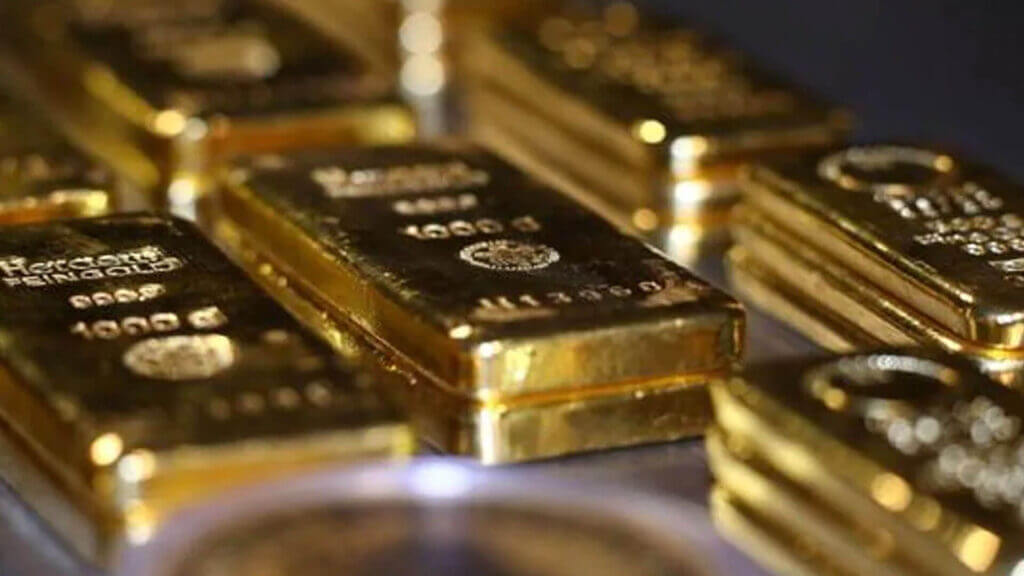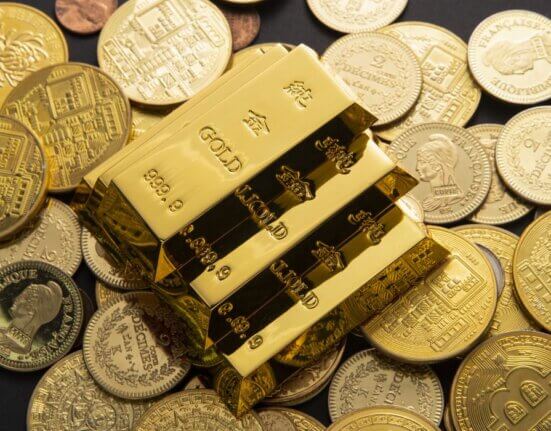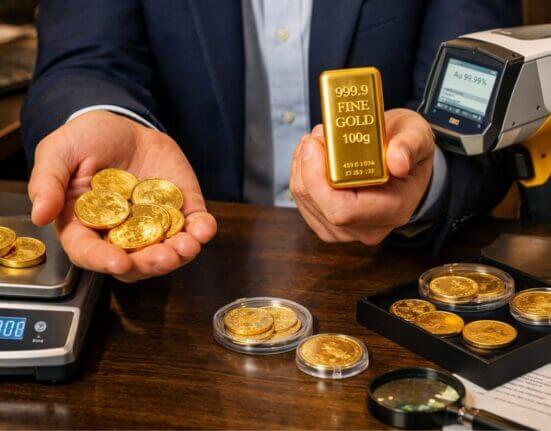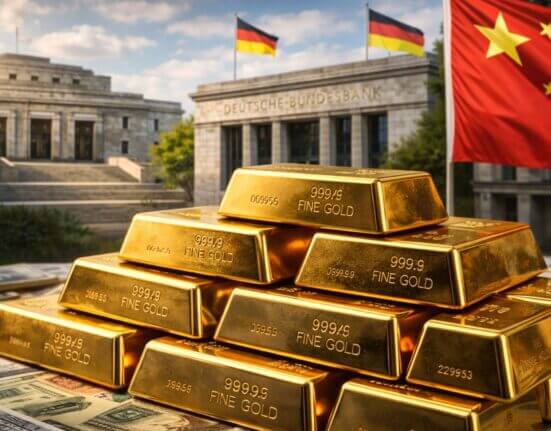Investing in Gold: What You Should Know Before Investing?
1. The Illusion of Physical Gold: when you buy gold but never actually see it
On paper, you own “gold” that you have never actually held in your hands. But what does this situation really mean?
Today, many people invest in so-called “paper gold” – ETFs linked to gold, certificates, gold funds, or even mobile apps that promise ownership of gold without ever delivering it in physical form. “Paper gold” is an asset that reflects the price of gold but is not physical gold itself. The value of your wealth in this case is not backed by the real metal. This type of investment is more suitable for trading purposes than for long-term wealth preservation.The problem is that, in many cases, investors do not have actual legal ownership of physical gold but only a claim to a share within a system.Example: During the financial crisis of 2008, some funds temporarily “froze” withdrawals for investors — precisely when liquidity was needed most.Tip: If you want true ownership, choose a provider that allows physical delivery of gold, with clearly stated terms, costs, and certificates.
Image: Gold is an attractive investment opportunity in times of uncertainty
2. Providers with Shiny Promises (and Empty Vaults)
- The company lacks transparent documentation on the origin of the gold.
- It does not offer the option of physical delivery.
- There are negative online reviews from customers who have had poor experiences with them — or no information available at all.
- The company is not based in the EU or is not supervised by reliable regulators.
How can you get precious metals significantly cheaper? Sign up now for free.
- How can physical gold and silver be significantly more affordable?
- How can you reduce commission when buying silver up to - 80%?
- How can you buy silver tax free, where you can get 22% more silver?
- How can you reduce commission when selling silver by as much as - 95%?
Participation in the webinar is free for our readers.
It is not worth buying a single gram until you have this information.
Enter your name and email address now to participate for free.

3. Hidden Costs No One Tells You About: margins, storage, buy-backs
Gold has its price — but it’s the hidden costs that can end up costing you even more. At first glance, investing in gold seems simple and safe — after all, it’s a precious metal that has been considered a reliable store of value for centuries.
However, behind the shiny façade of some providers lie various factors that can significantly affect the profitability of your investment. Hidden costs may appear in the form of high purchase and selling fees, storage expenses, insurance, tax obligations, or even currency exchange differences.Purchase MarginMost gold providers add their own margin to the market price of gold. This can range from 2% up to as much as 10% for smaller quantities. Margins are usually higher for small coins and bars, as production and distribution costs per unit are relatively higher. Prices can also increase due to special packaging, authenticity certificates, or brand premiums. In practice, this means that the price of gold must first rise by several percent just for the investor to break even — only then can profits begin to accumulate.Storage CostsIf you choose to store your gold in a vault (which is often advisable), check the annual storage fees, which typically range from 0.5% to 1.5% of the gold’s value per year.These costs are usually calculated based on the market value of your stored gold and must be paid regardless of whether your investment gains or loses value. In addition to the base storage fee, providers may also charge extra for insurance, handling fees when accessing your gold, or transfer fees if you move your gold to another vault.All these costs affect the final return and can significantly reduce profits over time. It’s therefore wise to compare different providers and carefully read the terms of service.Buyback CostsWhen selling, the provider will often deduct a fee. The difference between the buying and selling price (the so-called “spread”) means that gold must rise significantly in price before you break even. This difference can be even greater for physical gold, where market price is affected by processing, logistics, and resale risks. Example: If you bought gold with a 5% premium over the market price and sell it with a 3% discount, you’ve already lost 8% of your value at the start. Gold must therefore rise considerably in price before you cover transaction costs and start generating profit. Over the long term, these costs may average out, but for short-term investments they represent a serious obstacle to positive returns.Tip: Always ask about all fees in advance, even if the offer is advertised as a “no-commission” investment. Compare providers and calculate when your investment will actually start to pay off.4. “Paper Gold” and Delayed Exits
For ETFs and certificates, payout times can take several days, especially during periods of crisis when systems become overloaded. Some platforms also have transaction processing times that are not suited for urgent situations.
Example: During the 2020 pandemic, some digital providers reported delays in gold sales due to shortages of physical gold and logistical bottlenecks.Tip: If liquidity is important to you, make sure to check:
- how long it takes to sell your gold,
- whether there are any restrictions or “lock-in” periods (A “lock-in” period is a timeframe after purchase or investment during which the investor cannot sell or withdraw funds without incurring additional fees, penalties, or losing certain benefits),
- and whether your exit depends on market conditions.

5. How to Invest Wisely: 5 Questions You Should Ask Yourself Before Investing
Do I understand the investment product being presented?
If you don’t understand the difference between an ETF and a physical gold bar, it’s time to do some more research.
Who is the provider, and what certificates do they hold?
Look for offers backed by recognized certifications such as LBMA (London Bullion Market Association) or “Good Delivery” status.
Where is my gold physically stored?
In Slovenia? In Switzerland? Is it stored individually or collectively?
Where your gold is physically stored is a key question that affects both the safety and accessibility of your investment, as well as potential tax implications. The storage location and type (individual or collective) can influence risk, costs, and how quickly you can access your gold.
Can I take physical possession of the gold?
If not, it may not be real gold ownership, but merely a paper share — or “paper gold.”
What are all the costs associated with the investment?
Find out all costs linked to the purchase, including buy/sell spreads, storage fees, and any withdrawal charges.
Bonus Tip
Gold should be part of your diversified investment portfolio, as this is one of the best strategies for reducing risk and increasing stability. As a precious metal, gold often serves as protection against inflation, economic downturns, or financial market uncertainty. When stocks or bonds are under pressure, gold can provide a safe haven and preserve value.

Gold Isn’t the Problem – the Illusions Are
Gold Isn’t the Problem – the Illusions Are
Gold has preserved and increased its value for thousands of years. Buying gold is not necessarily the most exciting investment — it’s not a “moon” investment (one with exceptionally fast growth potential) — but it is a reliable safeguard against uncertainty. The biggest issue isn’t the precious metal itself, but the unrealistic expectations of investors and the dishonest providers who exploit them.
If you want to invest in gold, educate yourself, ask the right questions, and remember: gold isn’t truly yours until it’s in your hands. For expert advice and insider insights, reach out to us. We’ll create a strategic plan for investing in gold and other precious metals and guide you through the challenges and opportunities this investment segment brings.
Whether you’re a beginner or an experienced investor, we’re here to provide personalized guidance to help you make the best possible decisions. Don’t wait — contact us today and start investing safely and wisely in your future!
PURCHASE OF GOLD. Free information. You can get up to 1/3 more precious metals!
- How can you buy gold and silver for investment?
- Much cheaper.
- We discover how you can reduce seller commissions.
- Highest quality. 999/1000. Good delivery.
Information worth its weight in gold. Completely free
It is not worth buying a single gram until you have this information.
Enter your name and email address now to participate for free.








